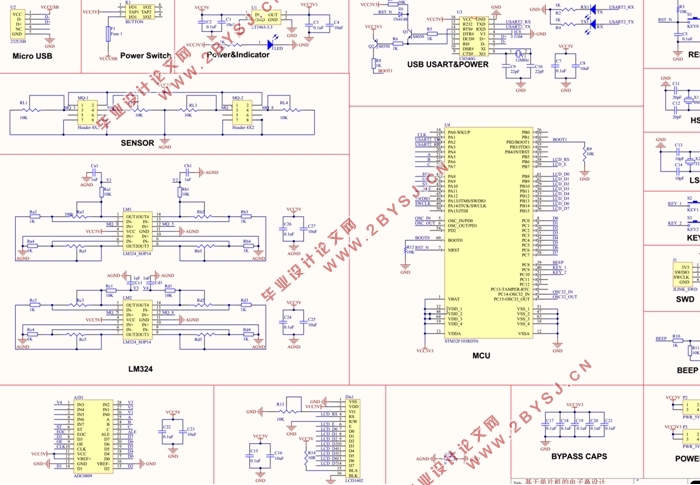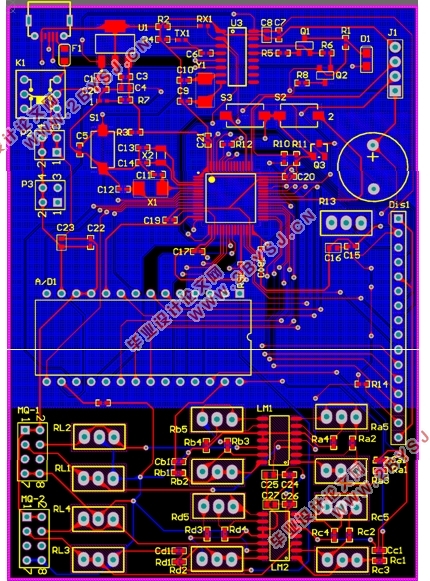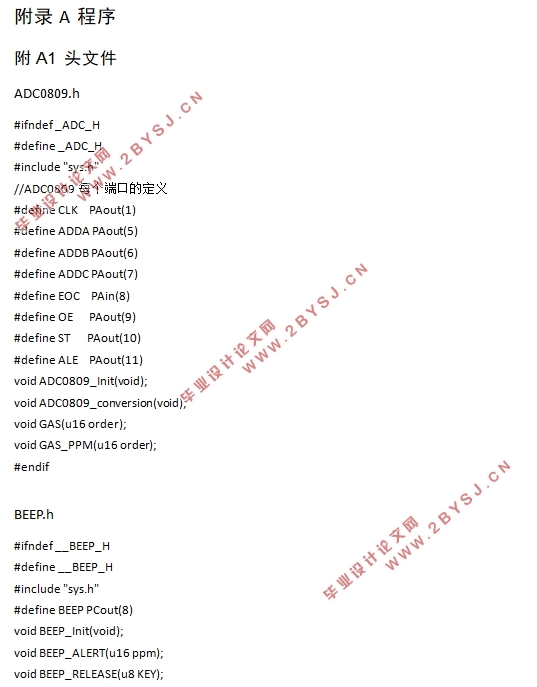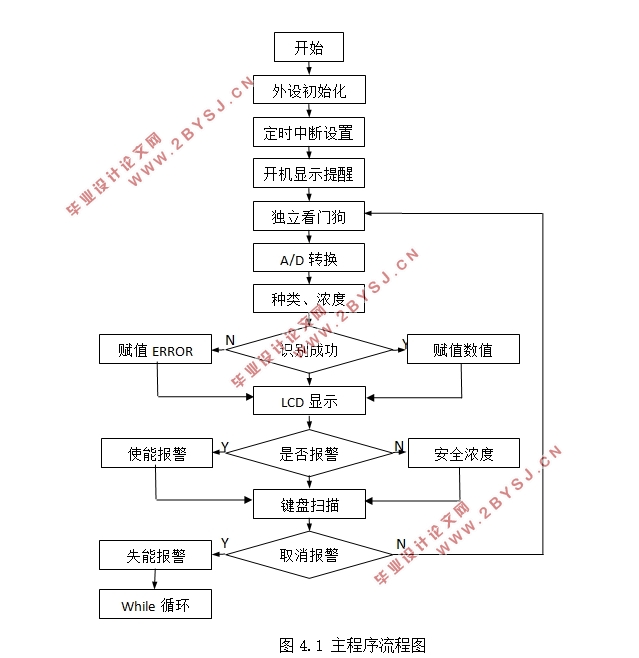基于单片机的电子鼻设计(附程序清单,原理图,PCB图)
无需注册登录,支付后按照提示操作即可获取该资料.
基于单片机的电子鼻设计(附程序清单,原理图,PCB图)(任务书,开题报告,外文翻译,论文15000字,程序清单,原理图,PCB图)
摘要
基于微控制芯片和气体传感器阵列的电子鼻系统目前发展境况良好。作为一种探测技术,电子鼻在各大领域都应用广泛。在国外电子鼻在商业化后价格也普遍偏贵,为了精简费用和扩大电子鼻的应用区域,本篇论文就旨在设计一种结构简单的基于STM32的电子鼻设计方案。依据气体传感器阵列输出的响应信号,执行信号放大程序和控制模数转换电路数据变换。所采集的数据在STM32中执行数据处理运算,主要方法是排序法,该方法能够利用差值剔除气体浓度,环境温度和湿度对计算结果的影响。通过LCD显示识别结果,这种电子鼻系统具有算法简单直接,较高识别准确率等优点。经过实际测试C2H6O、LPG这两种气体,都能成功识别。
关键词:电子鼻;排序法;STM32;气体传感器;Keil
Abstract
An electronic nose system based on micro-controller and the gas sensor array is developed well currently. As the kind of testing technology, electronic nose is widely used in various fields.
There is the commercialization of electronic noses with high prices in other countries. In order to reduce the costs and expand application scope, This paper is introduced the design of electronic noses system with the core of STM32.based on the output of the sensor array, this system finished the signal measurement, amplification and analog-digital conversion circuits. The data collected from STM32 will be ranked after a certain operation. This ranking method can effectively eliminate The affections on the recognition results because of the difference of gas concentration, temperature and humidity. And these gases will be identified through code displaying simply and intuitively. This paper is adopted Altium Designer software to draw hardware circuit diagram. The advantage of this electronic nose system is the high real correct recognition rate, with the simple algorithm. The success of the test proves that the design in practical application is feasible.
Key words: electronic nose; ranking method; STM32; gas sensor; Keil






目录
摘要 I
Abstract I
第1章 绪论 1
1.1背景 1
1.2嗅觉解析 1
1.3国内外研究现状 1
1.4课题研究内容 2
1.5目的和意义 3
第2章 整体方案设计 4
2.1 功能与实现 4
2.2 方案对比与选择 4
2.3 基于单片机的电子鼻识别原理 5
第3章 硬件电路设计 6
3.1气体传感器 6
3.1.1 气体传感器介绍 6
3.1.2 气体传感器参数 6
3.2 STM32F103最小系统设计 9
3.2.1 STM32F103介绍 9
3.2.2 最小系统 10
3.3 电源设计 12
3.3.1 供电接口 12
3.3.2 LT1963-3.3 12
3.4 CH340G 13
3.5 外设电路 13
3.5.1 按键电路 13
3.5.2 报警电路 13
3.5.3 SWD下载电路 14
3.5.4 旁路电容 14
3.6 传感器分压电路 15
3.7 同相双运放高共模抑制比放大电路 15
3.7.1 LM324 15
3.7.2放大电路 15
3.8 模数转换电路 17
3.8.1 ADC0809简介 17
3.8.2 ADC0809工作过程 18
3.8.3 频率及精度问题 18
3.9 LCD1602 19
第4章 软件设计 20
4.1 编程语言与开发环境 20
4.2 电子鼻软件设计部分 20
4.2.1 程序初始化函数 21
4.2.2 定时中断函及 21
4.2.3 LCD1602显示程序 21
4.2.4 外设函数 22
4.2.5 种类识别、浓度计算函数 22
4.2.6 独立看门狗 23
第5章 硬件制作与系统调试 24
5.1 AD绘制原理图和PCB图 24
5.2 实物制作 26
5.3 硬件调试 27
第6章 误差分析 29
总结 30
参考文献 31
致 谢 32
